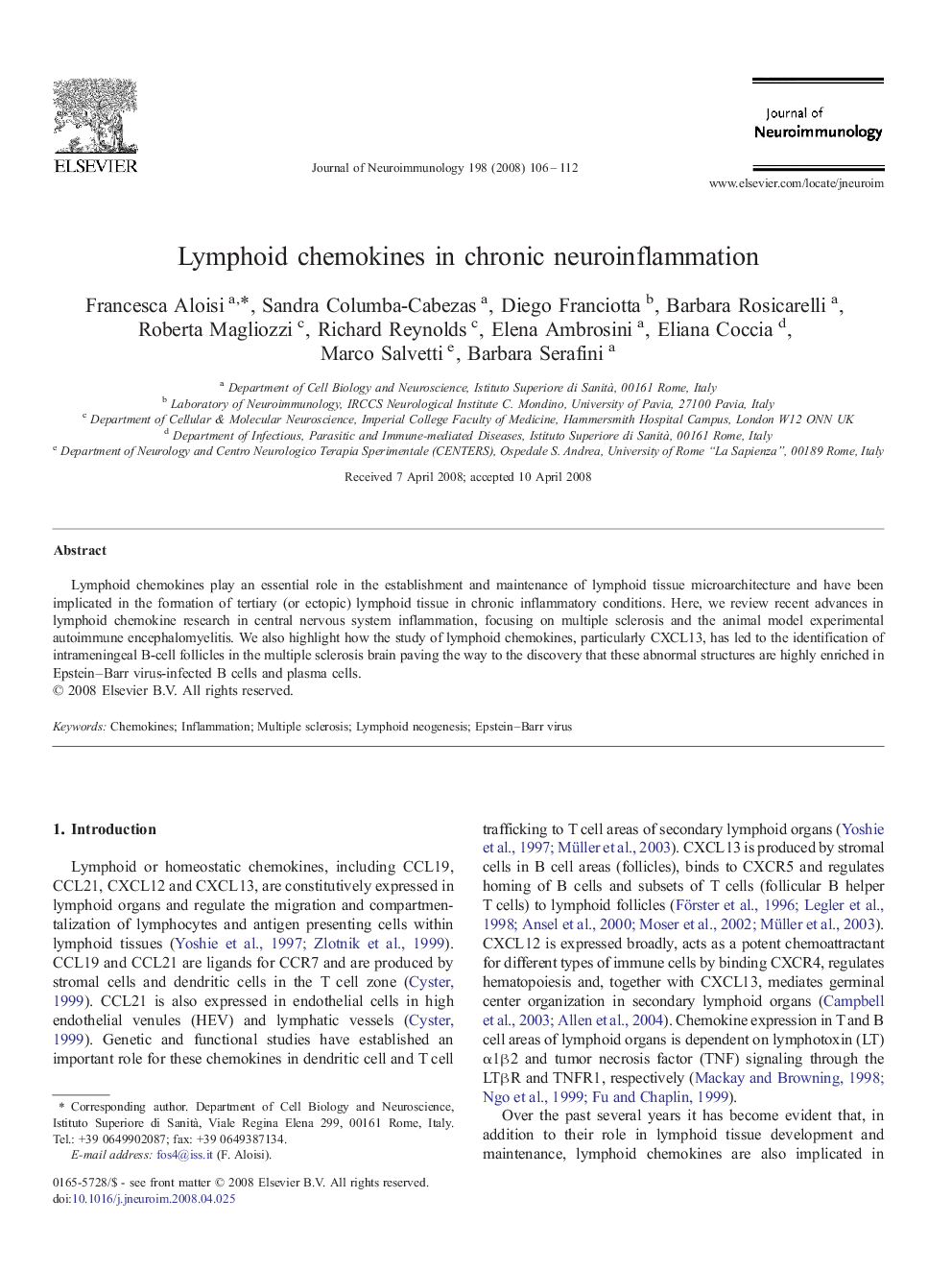| Article ID | Journal | Published Year | Pages | File Type |
|---|---|---|---|---|
| 3065284 | Journal of Neuroimmunology | 2008 | 7 Pages |
Abstract
Lymphoid chemokines play an essential role in the establishment and maintenance of lymphoid tissue microarchitecture and have been implicated in the formation of tertiary (or ectopic) lymphoid tissue in chronic inflammatory conditions. Here, we review recent advances in lymphoid chemokine research in central nervous system inflammation, focusing on multiple sclerosis and the animal model experimental autoimmune encephalomyelitis. We also highlight how the study of lymphoid chemokines, particularly CXCL13, has led to the identification of intrameningeal B-cell follicles in the multiple sclerosis brain paving the way to the discovery that these abnormal structures are highly enriched in Epstein–Barr virus-infected B cells and plasma cells.
Related Topics
Life Sciences
Immunology and Microbiology
Immunology
Authors
Francesca Aloisi, Sandra Columba-Cabezas, Diego Franciotta, Barbara Rosicarelli, Roberta Magliozzi, Richard Reynolds, Elena Ambrosini, Eliana Coccia, Marco Salvetti, Barbara Serafini,
